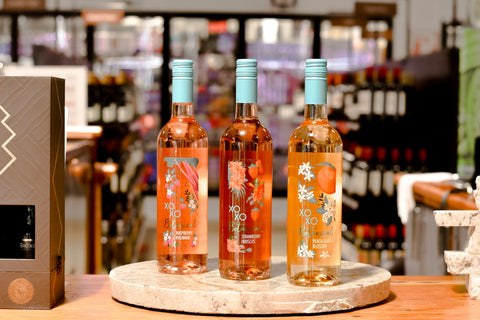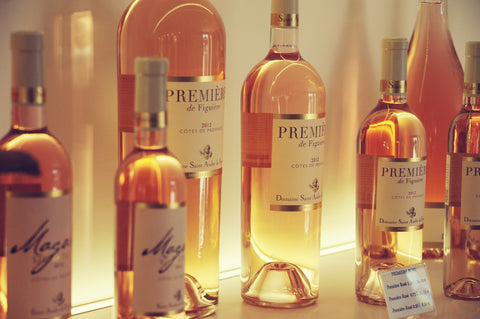Whether you’re an experienced connoisseur or just beginning your wine journey, buying wine requires careful consideration. Taking a few simple precautions can help you avoid common pitfalls and ensure you’re selecting high-quality wines suited to your tastes and budget. Here’s what you should know before making your next wine purchase.
1. Know the Producer and Region
One of the first precautions to take when buying wine is researching the producer and wine region. Wines from renowned regions like Bordeaux, Napa Valley, and Tuscany often have distinct characteristics and quality assurance based on terroir and winemaking tradition. Similarly, established producers with a reputation for excellence are more likely to produce reliable, high-quality wines. If you’re unfamiliar with a producer or region, a little background research can help you understand the wine’s potential profile and quality.

2. Check the Vintage Year
Vintage is the year the grapes were harvested, and it plays a significant role in a wine’s quality and flavor profile. Certain years are known for exceptional harvests due to favorable weather conditions. Research the vintage if you’re considering an investment or higher-end wine, especially for wines from weather-sensitive regions like Burgundy and Champagne. Generally, if you’re buying young, everyday wines, the vintage year may be less critical.
3. Inspect the Wine Label
Labels can reveal a lot about a wine, from the grape variety to the alcohol content. For example, wines labeled “Estate Bottled” are usually produced from grapes grown and bottled by the same winery, which often indicates greater quality control. Additionally, look for the Appellation d'Origine Contrôlée (AOC), DOCG (for Italian wines), or AVA (American Viticultural Area) symbols, which indicate region-based quality standards.
4. Consider the Wine’s Storage History
Proper storage is critical to a wine’s quality, especially for reds and age-worthy wines. When buying from a store, ask if the wine has been stored at a stable temperature (usually around 55°F). Exposure to high temperatures, light, and vibration can spoil wine, so purchasing from a reputable store that ensures ideal storage conditions, like Five Towns Wines & Liquors in New York, is key to a successful purchase.
5. Look for Potential Signs of Damage
Bottle damage can indicate improper storage or handling, which affects the wine's quality. Check for the following signs:
- Cork condition: If it’s pushing out of the bottle, it may mean the wine has overheated.
- Leakage: Wine seeping past the cork can indicate temperature fluctuations or a damaged seal.
- Sediment: While sediment is normal in older red wines, it should settle at the bottom of the bottle; excessive cloudiness could mean the wine is off.
If you spot any of these issues, consider choosing another bottle or asking the retailer about the wine’s storage history.
6. Pay Attention to Price and Value
Price can be an indicator of quality, but not always. Budget wines can be delicious, and high-end wines aren’t always worth the splurge if you’re not buying for collection or aging. Look for value-based wines with high ratings in reputable publications; these wines often offer excellent quality at a lower price. Also, check for discounts on lesser-known but reputable brands—great wines often fly under the radar.
7. Be Mindful of Buying Online
Buying wine online is convenient, but it’s essential to purchase from trusted retailers to ensure authenticity and quality. Ensure the retailer has a good return policy if the wine is spoiled or damaged upon arrival, and look for retailers that prioritize temperature-controlled shipping, especially in warmer months.
8. Ask for Recommendations
Never hesitate to ask for guidance. Whether you’re looking for something specific or simply need suggestions, talking to knowledgeable staff can be incredibly helpful. Stores like Five Towns Wines & Liquors have wine experts who can suggest options based on your taste preferences, budget, and the occasion, ensuring you leave with the perfect bottle.
9. Look at Wine Ratings and Reviews
Checking reviews from reputable sources or wine critics can give you a reliable sense of a wine’s quality and flavor profile. Websites, wine magazines, and online platforms that provide consumer reviews are excellent resources, especially if you’re venturing into new varietals or brands. Look for consistently high-rated wines, but remember that personal taste ultimately matters most.
Make Informed Choices for a Better Wine Experience
Wine buying should be an enjoyable experience, and these precautions will help you choose wines that are both high-quality and suited to your preferences. By taking a little extra time to research, inspect, and ask questions, you’ll have a better chance of selecting a wine that provides excellent value and enhances any occasion.


